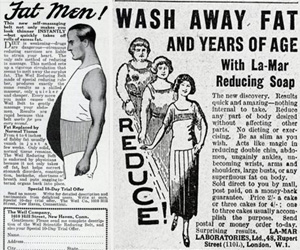- Aug 21, 2016
- 15,733
- 24,884
- AFL Club
- Geelong
- Other Teams
- Oldham
Lately, I've been getting a bit addicted to using the Trove website from the National Library of Australia to read the news from years ago. It's different from reading history written now in retrospect. This is the news as people saw it at the time. I've mainly been scanning the front page of The Age but there are heaps of publications to choose from and many of them go back to the mid 1800s.
So far, my main interest has been reading about the events around WWII. With Australia being part of the Empire much of the international news revolved round Britain. In the mid-1930s it seemed that Britain was more concerned with Japan than Germany. There were respectful references to Herr Hitler. There were reports of speeches and talks between the European parties but I didn't get the sense that they thought a huge war was about to start. Clicking forward to read the events of the war like you are at that time is fascinating. But at the same time ordinary life was going on. Then after the war ended there was still a lot of turmoil. France nearly had a civil war. The 1947 front pages were full of references to terrorists but it was Jewish gangs in Palestine attacking the British. The Cold War was beginning.
As I said WWII has been my main interest so far but I regularly run into little bits of unrelated treasure that is social commentary or significant world events.
eg
Ghandi's assasination
The start of atomic energy
nurses losing their jobs because they refused to wear stockings
I also found out that the Swastika was used by many organisations and countries including Australia as a symbol of good luck until WWII.
Sorry if TL;DR but if you are curious try delving into the old newspaper records and see what gems you find.
http://trove.nla.gov.au/
So far, my main interest has been reading about the events around WWII. With Australia being part of the Empire much of the international news revolved round Britain. In the mid-1930s it seemed that Britain was more concerned with Japan than Germany. There were respectful references to Herr Hitler. There were reports of speeches and talks between the European parties but I didn't get the sense that they thought a huge war was about to start. Clicking forward to read the events of the war like you are at that time is fascinating. But at the same time ordinary life was going on. Then after the war ended there was still a lot of turmoil. France nearly had a civil war. The 1947 front pages were full of references to terrorists but it was Jewish gangs in Palestine attacking the British. The Cold War was beginning.
As I said WWII has been my main interest so far but I regularly run into little bits of unrelated treasure that is social commentary or significant world events.
eg
Ghandi's assasination
The start of atomic energy
nurses losing their jobs because they refused to wear stockings
I also found out that the Swastika was used by many organisations and countries including Australia as a symbol of good luck until WWII.
Sorry if TL;DR but if you are curious try delving into the old newspaper records and see what gems you find.
http://trove.nla.gov.au/







